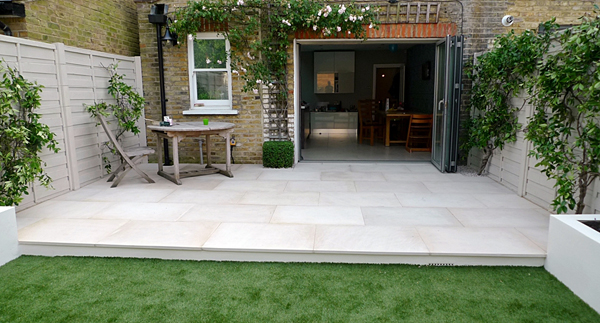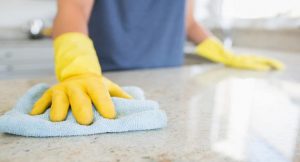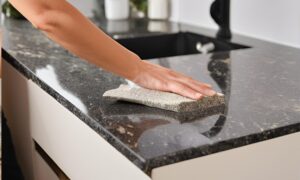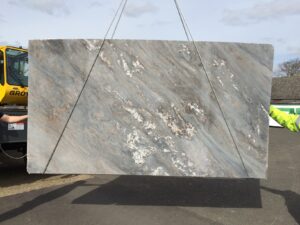Cleaning Patios, Stone Tiles and Other Outdoor Stone
After bright days in early spring, May and June have been pretty wet and like us, you may be looking out the window and wondering when you’ll get to use your patio. Summer sun is ahead though, and cleaning the build up of winter dirt from your outdoor stone is a great way to prepare. Intrinsically tough, natural limestone paving, marble and granite weather well so minimal care is required. Here are our top tips for cleaning patios, stone tiles and other outdoor stone:
Start with water
Run off from cleaning your patio or path can easily get into your plant beds and lawn so it’s best to start with the most gentle option: clean water. In many cases, water and a stiff broom will be sufficient to deal with the dirt left by muddy footprints, animals and the weather. Hose the entire space down and brush firmly moving water from the house or garden wall towards a flower bed or lawn area. Use a hand-held scrubbing brush on tough spots. Avoid using wire brushes as these can scratch or damage the finish on the stone.
Try a pressure washer
Home pressure washers are suitable for most outdoor stone, including natural limestone tiles and marble surfaces. These can be a quick and effective way of dealing ground-in dirt or accumulations that have built up over several years. As the water pressure does the job, you often won’t need to use any cleaner or chemicals in the system. A narrower band of water will tend to do a more thorough job but take longer.
Break out the chemicals
As with your marble kitchen worktops, we recommend starting with gentle cleaners and working your way up. It’s always best to test a hidden spot before covering the entire patio with a product as reactions can occur. As water will drain into your garden and possibly into the water table, it’s best to avoid using anything toxic that may kill plants or harm pets if consumed. Acidic substances, even natural cleaners such as vinegar or lemon juice, are not recommended for natural limestone tiles or any marble work as these stones can react with the acid, leading to dulling of the polish, pitting and occasionally further damage. If your patio has a rougher, more natural finish then the risk is lower.
Call in the professionals
As a last resort for very dirty tiles or where damage has occurred over the winter, you may need to call in a professional stone worker to refinish the stone or make repairs. The most common problems for outdoor stone are damaged slabs. This is often caused by subsidence under the stone combine with pressure from above. As an example, if rainwater or an animal opens up a hole under part of a natural limestone tile which is then driven over, cracking is likely. For this reason, it’s a good idea to always order a few more tiles than you need to save problems matching the stone later.





